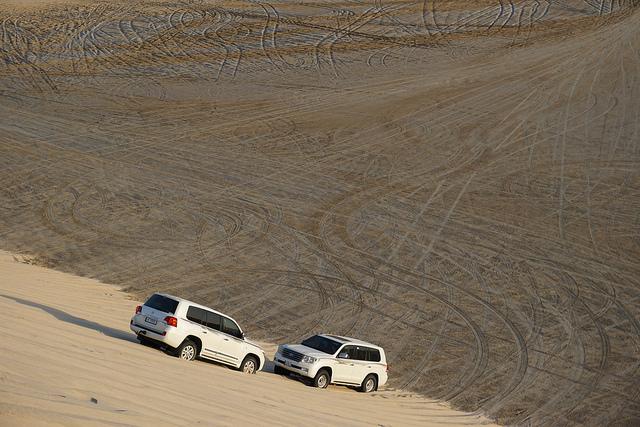
It’s been nearly two years since the simmering feud between Qatar and its Gulf neighbours, led by Saudi Arabia, erupted into a blockade intended to isolate Qatar until it capitulated once and for all.
In retaliation for Qatar’s alleged support for terrorism, Saudi Arabia, the United Arab Emirates, Bahrain and Egypt led a diplomatic, economic and travel embargo that included withdrawal of diplomatic staff, return of citizens from Qatar, and a land, sea and air blockade.
Shortly after these actions, Al Jazeera (a Qatari news outlet and a frequent source of irritation to Saudi Arabia and its friends) published the apparent list of 13 demands issued by the Saudi-led coalition. Qatar was given a mere 10 days to comply with all demands. Unsurprisingly, Qatar vigorously denied the allegations of terrorism funding, rejected the demands, and settled in for a siege.
On paper at least, it initially looked like Qatar was in serious trouble. In the blink of an eye it was cut off from 60% of its imports, and many of its key trade routes. Yet somehow, more than 20 months later, it’s Qatar that appears triumphant, or at least very much unbowed by what should have been intolerable pressure. So how has Qatar seemingly managed to shrug off what was supposed to be a death sentence?
To start with, Qatar has been relentless and thorough in its international engagement. Since the first announcements of the blockade, it has been on the front foot diplomatically, expanding its international relationships, pleading its case to the International Court of Justice, and relaying its message of being the victim of a gross injustice through its various influential news outlets.
Economically, it has worked even harder to broadcast the message that it is open for business. It has expanded its investments as far as Southeast Asia, increased exports by as much as 19%, and expanded previously state-owned projects to the private sector, encouraging foreign investment. Remarkably, since June 2017 Qatar’s economy has actually grown: GDP increased by 2.4% in 2018, and a projected 3.1% in 2019.
Qatar has decided to spend some of this largesse on bolstering its security, purchasing billions of dollars of weapons systems, announcing the construction of a new naval base, and planning to double its naval forces by 2025. The US is also expanding its Al Udeid Air Base in Qatar, already its largest in the region.
While Qatar continues its aggressive international campaign, Saudi Arabia has faltered. It lost considerable credibility on the heels of the murder of Jamal Khashoggi in Turkey, and its rapprochement with Israel, however subtle, is looked on askance by Gulf hardliners. Riyadh’s ongoing conflict in Yemen is deeply unpopular internationally, and the effects have been felt with countries such as Germany, Canada and Belgium halting arms sales to Saudi Arabia and the UAE (Australia continues to face pressure to follow suit).
The Saudis have also been unable to rely on consistent US support, with President Donald Trump moving from his initial response apparently endorsing Saudi Arabia’s actions, to his characterisation less than a year later of the emir of Qatar as a ‘great friend’.
Despite all the heated rhetoric and the lack of formal negotiations, there are signs of a slight thaw. Qatari gas continues to flow to the UAE, where it supplies around 30% of the country’s energy needs, and will continue to do so until at least 2032. Ports at Abu Dhabi and Dubai have both apparently eased restrictions on third-party shippers moving cargo to and from Qatar (although Qatari-flagged vessels are still banned). Preparation for the all-important hosting of the 2022 FIFA World Cup in Qatar continues unabated, a sure sign that it is not just Qatar that is confident in its future.
Qatar’s success is founded on one vital asset: its enormous gas reserves that have made it a leading gas exporter and, by some estimates, the richest country per capita. Such enormous wealth has provided a more than adequate buffer against the blockade. But in November 2018, the mantle of top gas exporter was passed to Australia. Qatar is unlikely to catch up again for several years, even with a substantial export increase planned.
Meanwhile, Qatar has shrugged itself free of the chains of OPEC, declaring an interest in expanding not only its gas but also its relatively small oil exports. If Qatar’s exports of gas and oil are threatened in any way, this could call its continued survival into question, and it will no doubt respond aggressively to any such threat.
In a complicated tangle of foreign investment, regional conflict, Saudi pressure, Asian demand, and the loss of OPEC as one of the last neutral grounds for discussion, Qatar will need to continue its deft balancing act, and Australia should be watching closely.